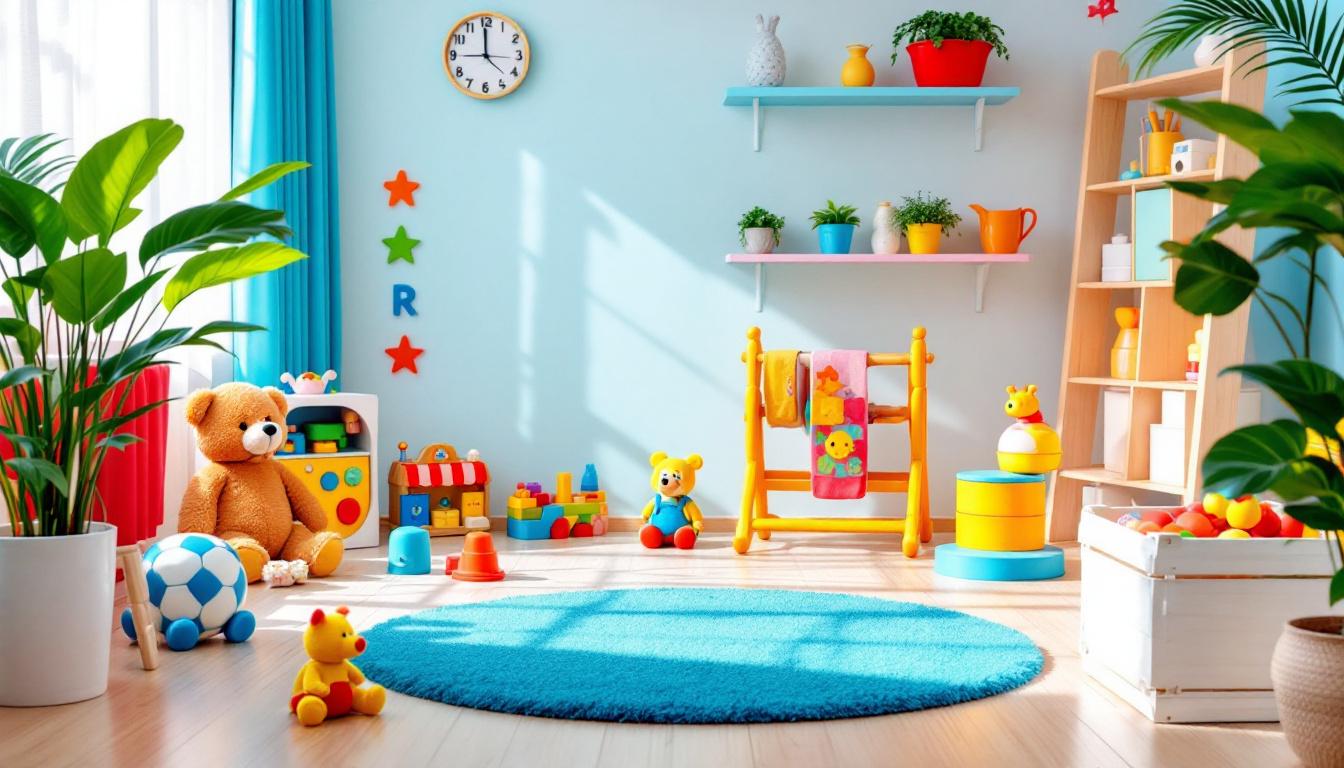Activities for Autistic Teenagers
Unlocking Potential: Engaging Activities for Youth on the Spectrum

Supporting Growth Through Inclusive Activity Choices
Engaging autistic teenagers in a variety of recreational, social, and therapeutic activities can significantly enhance their social skills, emotional well-being, and overall development. Through tailored interactions that align with their interests and sensitivities, caregivers, educators, and families can foster confidence, independence, and a sense of belonging. This guide explores a broad spectrum of activities—from fun and creative endeavors to evidence-based therapies—designed to meet the unique needs of autistic teens.
Developing Social Skills through Group Activities

What are social skills activities for autistic teenagers?
Engaging in team sports such as basketball, soccer, or swimming can be especially helpful for teenagers on the autism spectrum. These activities promote essential social abilities like taking turns, cooperating with peers, and following rules. Team sports offer a natural environment for practicing communication and building friendships.
Organized clubs and group games also serve as effective platforms for social skill development. Activities like art clubs, chess groups, or drama teams encourage interaction, sharing ideas, and understanding social norms. These settings often provide structured opportunities for autistic teens to connect with others who share their interests.
Structured social scenarios, including role-playing and storytelling, are valuable tools for teaching perspective-taking and emotional understanding. For example, role-playing different social situations can help teens navigate real-life interactions more confidently.
What games and activities are good for autistic teenagers?
Many activities cater well to the needs of autistic teens, combining fun with skill-building. Video games like Minecraft, Portal 2, and New Super Mario Bros are excellent options. These games stimulate creativity, improve problem-solving skills, and promote logical thinking.
Additionally, puzzles are a beneficial activity that enhances concentration, fine motor skills, and visual processing abilities. Jig saw puzzles, in particular, serve as engaging visual tasks that help strengthen focus.
These activities not only provide sensory and cognitive stimulation but also support social interaction when played together with family or peers. Incorporating such diverse activities helps create a balanced routine that fosters growth, enjoyment, and social connection.
| Activity Type | Examples | Benefits |
|---|---|---|
| Team Sports | Basketball, swimming, soccer | Build cooperation, follow instructions, social bonding |
| Club & Group Games | Art club, chess, drama | Promote sharing, social norms, communication |
| Structured Scenarios | Role-playing, storytelling | Develop empathy, emotional understanding |
| Video Games | Minecraft, Portal 2, Mario | Encourage creativity, problem-solving |
| Puzzles | Jigsaw puzzles | Enhance focus, fine motor skills |
These activities serve as excellent tools for fostering social skills, emotional understanding, and a sense of belonging among autistic teenagers.
Creative and Educational Activities That Stimulate Minds

What games and activities are good for autistic teenagers?
Autistic teens benefit from activities that engage their interests while supporting their development. Video games such as Minecraft, Portal 2, and New Super Mario Bros can be excellent choices. These games promote problem-solving, offer control and predictability, and help develop fine motor skills. Puzzles, especially jigsaw puzzles, are also great for improving focus, visual-spatial skills, and tactile engagement. They encourage patience and perseverance, fostering a sense of accomplishment.
What extracurricular activities are suitable for autistic teens?
Choosing the right extracurricular activities can boost confidence and social skills for autistic teenagers. Art classes, music groups, and sports teams provide fun ways to develop communication and motor skills. Clubs like environmental groups, chess, or dance also cater to diverse interests, fostering teamwork and social interaction.
Activities should be tailored to each teen’s strengths and preferences. For example, some may enjoy creative writing or fan groups that allow self-expression. Structured routines and supportive environments are essential to make these activities enjoyable and beneficial.
| Activity Type | Examples | Focus Areas | Additional Benefits |
|---|---|---|---|
| Digital & Puzzles | Minecraft, Portal 2, jigsaw puzzles | Problem-solving, fine motor, focus | Enhances logic and tactile skills |
| Arts & Crafts | Painting, clay modeling, creative writing | Creativity, self-expression | Builds confidence and emotional expression |
| Sports & Movement | Soccer, dance, martial arts | Motor skills, teamwork | Encourages physical health and social bonds |
| Music & Performing Arts | Choirs, music lessons | Listening, coordination | Fosters self-esteem and sensory integration |
| Clubs & Community | Environment clubs, chess, fan groups | Interests, social skills | Promotes community involvement |
Engaging in such versatile activities helps autistic teenagers develop important social, cognitive, and emotional skills. With tailored support and encouragement, these pursuits can inspire a lifelong love of learning and personal growth.
Therapeutic and Sensory Activities to Promote Well-being
 Autistic teenagers can greatly benefit from a variety of activities designed to support their sensory and emotional development. Music therapy, for instance, helps stabilize mood swings, reduce anxiety, and enhances speech, language, and memory skills. Engaging in sensory activities such as sensory bins, calming sound resources like noise-canceling headphones, and tactile exercises can further aid in emotional regulation and self-awareness.
Autistic teenagers can greatly benefit from a variety of activities designed to support their sensory and emotional development. Music therapy, for instance, helps stabilize mood swings, reduce anxiety, and enhances speech, language, and memory skills. Engaging in sensory activities such as sensory bins, calming sound resources like noise-canceling headphones, and tactile exercises can further aid in emotional regulation and self-awareness.
Sensory tools like fidget toys are effective for maintaining focus and emotional regulation, especially during stressful moments. Additionally, sensory resources such as rhythmic instruments or sensory bottles can provide calming sensory input, helping teens manage sensory overload and promote relaxation.
Some activities are particularly suited for addressing the sensory needs of autistic teens. Sensory bins filled with different textured objects, or activities like finger painting or slime-making, stimulate tactile senses in a fun and calming way. Utilizing calming sound resources, such as soft music or white noise, can help create a soothing environment.
Moreover, incorporating self-regulation tools like calm-down cards that display visual cues and coping strategies can empower teens to manage their emotions independently. When combined with outdoor activities such as nature walks, these practices can significantly improve stress levels and overall well-being.
Many programs recommend including evidence-based therapies like Applied Behavior Analysis (ABA). For example, FortaHealth provides free ABA training and access to telehealth ABA therapy, allowing teen participants to develop crucial social and independence skills conveniently from home.
In summary, activities supported by sensory tools and therapeutic interventions are vital in fostering emotional stability and sensory integration. These activities help teens better navigate their environment, enhance their self-regulation, and improve overall mental health.
Outdoor and Physical Activities to Enhance Motor Skills and Confidence

What games and activities are good for autistic teenagers?
Autistic teenagers can greatly benefit from engaging in activities that foster both physical development and sensory stimulation. Video games like Minecraft, Portal 2, and New Super Mario Bros are excellent options because they encourage strategic thinking, problem-solving, and fine motor skills. Additionally, puzzles are highly effective as they help improve focus, spatial awareness, and tactile engagement. These activities also provide a controlled environment where teens can develop concentration and dexterity.
What activities can support the sensory and emotional needs of autistic teens?
Sensory activities such as sensory circuits, nature walks, and climbing are particularly helpful for sensory integration and emotional regulation. Sensory circuits involve structured movement exercises that stimulate different senses, helping teens improve coordination and self-regulation. Nature walks and outdoor exploration foster calming experiences while promoting physical health and confidence through mastery of new environments.
Sports and Proprioceptive Activities
Engaging in sports such as skateboarding, martial arts, and archery can enhance motor skills, balance, and coordination. These activities provide opportunities for teens to learn rules, develop focus, and build self-confidence. Climbing and swinging are also beneficial as they offer proprioceptive feedback—deep pressure and movement that help with sensory regulation and body awareness.
Building Confidence through Movement and Exploration
Outdoor exploration activities like camping, nature scavenger hunts, and hiking promote not only physical fitness but also social skills and independence. These experiences encourage teens to explore their environments safely, develop responsibility, and enjoy natural settings.
| Activity Type | Examples | Benefits |
|---|---|---|
| Team sports | Soccer, basketball | Social skills, teamwork |
| Adventure activities | Climbing, swinging | Motor skills, proprioception |
| Outdoor exercises | Nature walks, hiking | Emotional well-being, confidence |
| Special sensory activities | Sensory circuits, tactile exploration | Sensory integration, regulation |
More about outdoor activities for autistic teens
Choosing suitable outdoor and physical activities can be highly individualized. It’s important for parents and caregivers to consider the teen’s interests, sensory sensitivities, and safety. Engaging in these activities not only builds physical skills but also boosts social confidence and emotional resilience, leading to greater independence and well-being.
Structured Recreational Programs and Community Engagement
What extracurricular activities are suitable for autistic teens?
A variety of organized social and recreational options can be highly beneficial for autistic teenagers. These include scouts and community clubs such as art, drama, chess, math, Lego, astronomy, computer coding, gaming, dance, gymnastics, and soccer. Additionally, music lessons and fan groups foster a sense of belonging and cater to diverse interests.
Participating in these activities offers opportunities to develop social skills, explore interests, and enjoy structured routines, which many autistic teens find comforting.
What are some effective activities for autistic teens?
Activities that provide structure and routine tend to resonate well with autistic individuals. Engaging in clubs or teams allows teens to build social connections, learn new skills, and gain confidence.
Parents can support their children by discussing their interests, exploring activities that align with their strengths, and advocating for their inclusion in various programs.
Organized community programs often facilitate meaningful interactions, promote independence, and foster a sense of achievement.
Resources and Opportunities
Many local communities and organizations offer tailored programs for autistic youth. These programs not only promote skill development but also provide safe spaces for social engagement.
School and community centers frequently run workshops, sports leagues, and activity clubs that can adapt to different abilities and preferences.
By participating in these programs, autistic teenagers can enjoy physical activity, learn teamwork, and develop lifelong skills.
| Activity Type | Examples | Benefits |
|---|---|---|
| Social Clubs | Art, drama, chess, fan groups | Building friendships and communication skills |
| Sports & Physical Activities | Soccer, gymnastics, martial arts | Improving motor skills, teamwork, confidence |
| Virtual Platforms | Online art classes, coding clubs, gaming communities | Flexibility, accessible social interaction |
| Creative & Learning | Music lessons, coding, science clubs | Cognitive growth, creativity |
Exploring these activities with encouragement and support can significantly enhance the social and emotional well-being of autistic teens.
Supporting Autistic Teens with Technology and Virtual Resources
What games and activities are good for autistic teenagers?
For autistic teenagers, engaging in virtual interactive activities can be both fun and educational. These include learning games, art projects, movement-based activities, music exploration, outdoor virtual adventures, reading exercises, sports simulations, and technology-oriented activities. These options are designed to cater to diverse interests while being autism-friendly, promoting engagement and development.
Online platforms and resources provide accessible ways to participate. For example, Camp BuddEConnect offers a variety of online activities that support autistic youth, creating a safe environment for exploration. Other resources include websites and apps dedicated to art creation, gaming, and outdoor virtual tours, helping teens develop skills at their own pace.
What are some effective activities for autistic teens?
One especially beneficial resource is the ’Know Yourself’ series, which supplies free digital materials such as videos, PDFs, and worksheets. These tools are created and led by autistic individuals, ensuring authentic perspectives and credibility. The series helps teenagers explore what it means to be autistic, understand their energy levels, explore their identities, and set themselves up for success.
These activities and resources empower teens to develop self-awareness, social understanding, and confidence through engaging, relatable content. Using videos and worksheets, teens can learn to articulate their feelings, understand their strengths, and navigate social situations more effectively.
This intersection of technology and tailored educational resources supports autistic teenagers in gaining independence and self-knowledge while enjoying activities suited to their interests.
| Activities Offered | Description | Benefits |
|---|---|---|
| Virtual learning games | Interactive online games tailored for autism | Cognitive development, engagement |
| Art & craft platforms | Digital art creation and craft tutorials | Creativity, fine motor skills |
| Movement & outdoor exploration | Virtual outdoor tours and movement activities | Physical activity, mood regulation |
| Music & rhythm | Online music lessons and rhythm games | Sensory stimulation, self-expression |
| Self-discovery resources | Educational videos and worksheets | Understanding autism and self-awareness |
Combining Activity and Therapy for Holistic Development
 Engaging in a variety of activities plays a vital role in supporting the development of autistic teenagers. Activities such as playing board games, dancing, reading books, storytelling, video gaming, listening to music, caring for pets, and gardening are not only enjoyable but also promote social skills, problem-solving, and emotional regulation.
Engaging in a variety of activities plays a vital role in supporting the development of autistic teenagers. Activities such as playing board games, dancing, reading books, storytelling, video gaming, listening to music, caring for pets, and gardening are not only enjoyable but also promote social skills, problem-solving, and emotional regulation.
In addition to these engaging pursuits, integrating evidence-based therapies like Applied Behavior Analysis (ABA) enhances developmental outcomes. ABA focuses on modifying behavior through structured teaching methods, and many platforms, such as FortaHealth, offer free ABA training and telehealth services. This combination helps teens build independence and social skills effectively from the comfort of their home.
The importance of support tailored to each individual cannot be overstated. Structured routines and personalized activity choices aligned with a teen’s interests and sensitivities create a supportive environment conducive to growth.
Caregivers and educators play a crucial role in fostering participation. They can encourage exploration by introducing diverse activities, supporting progress, and celebrating small successes to boost confidence. Creating predictable routines and providing a safe space for expression help teens feel secure and motivated to develop new skills.
Overall, a balanced approach that combines engaging, enjoyable activities with structured therapeutic support can substantially improve the well-being and development of autistic teenagers, helping them reach their full potential.
Empowering Through Choice and Connection
Providing a diverse array of activities that cater to the interests and needs of autistic teenagers can foster skills development, boost emotional health, and strengthen social bonds. Whether through sports, arts, sensory activities, or virtual platforms, tailored engagement helps guide autistic youth towards a more confident and independent future. Supporting their interests and preferences ensures that every teen feels valued and understood, nurturing a foundation for lifelong growth and connection.
References
- 13 Activities For Teenagers With Autism
- Resources for autistic teenagers
- 24 Classroom Activities for Kids with Autism
- Recreational activities: autistic teens
- Virtual interactive autism activities
- 10 Fun Sensory Activities for a Child with Autism
- 10 Brilliant Sensory Activities for Autistic Teenagers
Recent articles

The Role of Prompting and Fading in ABA Therapy Programs
Enhancing Autism Interventions Through Systematic Support Reduction

The Role of ABA Therapy in Supporting Community Participation
Enhancing Lives Through Community-Focused ABA Interventions

The Role of ABA Therapy in Encouraging Initiative and Motivation
Unlocking Potential: How ABA Empowers Children to Take Initiative

How ABA Therapy Helps Children Develop Initiation and Motivation
Unlocking Potential: The Power of ABA in Fostering Child Independence

How ABA Therapy Encourages Participation in Cooperative Group Activities
Fostering Social Skills Through ABA Interventions

How ABA Therapy Supports Independent Task Initiation in Children
Empowering Children to Begin with Confidence

How ABA Therapy Helps Children Build Resilience in Challenging Situations
Building Emotional Strength Through ABA Therapy

The Impact of ABA Therapy on Reducing Anxiety in Social Settings
Transforming Social Experiences: How ABA Therapy Eases Autism-Related Anxiety

Strategies for Teaching Self-Monitoring Through ABA
Empowering Independence: Techniques to Foster Self-Monitoring with ABA

The Benefits of Combining ABA with Speech and Language Therapy
Integrating Treatment Approaches to Maximize Developmental Progress

Strategies for Teaching Cooperative Problem-Solving Through ABA
Enhancing Collaborative Skills with ABA: Proven Strategies and Techniques

How ABA Therapy Encourages Independent Participation in Daily Tasks
Empowering Autonomy: How ABA Therapy Builds Independence in Daily Life

Creating an Effective Learning Environment at Home for ABA Therapy
Building a Supportive Home Environment for ABA Success

How ABA Therapy Encourages Following Safety Rules at Home and School
Empowering Children with Autism to Follow Essential Safety Rules

How ABA Therapy Encourages Communication Using Gestures and Signs
Enhancing Social Skills with Targeted Gesture Teaching

Common ABA Therapy Techniques for Reducing Aggression
Innovative Strategies in ABA to Minimize Aggressive Behaviors

How ABA Therapy Encourages Communication Using Gestures and Signs
Unlocking the Power of Gestures and Signs in Autism Therapy

How ABA Therapy Encourages Appropriate Social Greetings
Enhancing Social Skills Through Evidence-Based Interventions

Addressing Social Anxiety Using ABA-Based Techniques
Harnessing ABA to Alleviate Social Anxiety

Famous Politicians With Autism
Celebrating Neurodiversity: Insights into Autism and Notable Figures

How ABA Therapy Can Help with Anxiety in Children with Autism
Unlocking Emotional Well-Being: The Power of ABA in Managing Autism-Related Anxiety

The Impact of ABA Therapy on School Success
Enhancing Educational Outcomes with Systematic Interventions

The Importance of Social Stories in ABA Therapy
Harnessing Social Stories to Enhance Social Skills in Autism Interventions

Mild Autism
Understanding the Nuances of Mild Autism

What Are Functional Behavior Assessments (FBA) in ABA Therapy?
Unlocking the Secrets Behind Behavior: The Power of FBAs in ABA

Early Signs Of Autism In Babies And Kids
Recognizing Early Indicators to Support Developmental Health

How to Find Funding for ABA Therapy Services
Unlocking Funding Opportunities for Autism Treatments

How to Help a Child with Autism Transition to ABA Therapy
Supporting Children Through Transition Phases in ABA Therapy

Do Autistic People Get Injured More?
Examining Injury Risks in Individuals with Autism Spectrum Disorder

How ABA Therapy Can Help with Executive Functioning Challenges
Unlocking Skills: The Impact of ABA on Executive Functioning in Autism

What is the Premack Principle in ABA Therapy?
Unlocking Motivation: The Power of the Premack Principle in ABA Therapy

Low-Functioning Autism
Understanding the Challenges and Supports for Low-Functioning Autism

Low-Functioning Autism
Understanding the Challenges and Supports for Low-Functioning Autism

How ABA Therapy Can Help with Playdates and Social Events
Unlocking Social Success: How ABA Therapy Facilitates Playdates and Community Engagement

How ABA Therapy Can Address Impulse Control Issues
Mastering Behavioral Growth: The Power of ABA in Impulse Control

Book, Movie, and TV Characters on the Autism Spectrum
Enhancing Understanding Through Fictional Portrayals

Book, Movie, and TV Characters on the Autism Spectrum
Enhancing Understanding Through Fictional Portrayals

The Role of Visual Supports in ABA Therapy
Enhancing Autism Interventions with Visual Supports

What Is Pervasive Developmental Disorder
Understanding the Spectrum of Developmental Challenges

How ABA Therapy Helps with Emotional Regulation
Empowering Emotional Resilience in Children with Autism

What is Task Analysis in ABA Therapy?
Unveiling the Foundations of Task Analysis in ABA Therapy

How ABA Therapy Can Improve Play Skills
Unlocking Growth: The Power of ABA in Enhancing Play Skills

Air Pollution and Autism
Unveiling the Environmental Impact on Developing Minds

How ABA Therapy Can Help with Bullying Prevention
Building Respect and Resilience Through ABA

How ABA Therapy Can Be Used to Teach Problem-Solving Strategies
Empowering Individuals with Autism Through Targeted Problem-Solving Skills

Can Autistic People Work?
Unlocking Potential: The Realities of Employment for Autistic Individuals

How ABA Therapy Can Help with Homework and Academics
Empowering Academic Success with ABA Therapy

Common Myths About ABA Therapy Debunked
Unmasking Autism Treatment: The Truth About ABA Therapy

Does Aluminum Cause Autism?
Unraveling the Link: Aluminum and Autism Spectrum Disorder

How ABA Therapy Can Support Emotional Expression and Understanding
Unlocking Emotional Growth in Autism Through ABA Therapy

The Role of ABA Therapy in Helping Children Learn Road Safety
Empowering Safe Journeys: How ABA Therapy Fosters Road Safety Skills in Children

The Role of Group ABA Therapy in Social Development
Enhancing Social Skills Through Collective Strategies

What Is Autistic Burnout?
Understanding the Hidden Struggle of Autistic Burnout

How Do You Get An Autistic Child To Keep Their Shoes On?
Mastering Comfort and Compliance with Shoes for Autistic Children

The Role of ABA Therapy in Addressing Food Aversions and Picky Eating
Transforming Mealtimes: How ABA Therapy Supports Children with Autism

How ABA Therapy Can Assist in Reducing Perfectionism and Anxiety
Harnessing Behavioral Science to Ease Perfectionism and Anxiety

What Is Defeat Autism Now?
Unveiling the Roots and Realities of the DAN Movement

How ABA Therapy Can Help Children Develop Conflict Resolution Skills
Building Bridges: Empowering Children with Conflict Resolution Skills through ABA

OCD vs. Autism
Unraveling the Complex Relationship Between OCD and Autism

Temper Tantrums A Sign Of Autism
Understanding the Complex Relationship Between Temper Tantrums and Autism Spectrum Disorder

How to Pass the BCBA Exam
Your Ultimate Guide to Success in the BCBA Exam

Autism and Addiction's Close Connection
Unraveling the Complex Interplay Between Autism and Substance Use

Autism Facial Expressions
Decoding Emotions: The Complex World of Facial Expressions in Autism

How ABA Therapy Can Help Reduce Anxiety Around Doctor and Dentist Visits
Transforming Medical Experiences for Children with Autism

How ABA Therapy Can Help with Navigating Social Media Responsibly
Empowering Safe Online Engagement for Children with Autism through ABA

How to Choose an Autism Charity
Navigating the Spectrum of Support: A Guide to Selecting the Right Autism Charity

What is Precision Teaching in ABA Therapy?
Harnessing Data-Driven Strategies for Skill Mastery

Autism and Obesity
Understanding the Overlap: Autism and the Rising Concern of Obesity

Individualized Education Programs (IEPs) for Autism
Supporting Success: A Comprehensive Guide to IEPs for Children with Autism

How to Integrate ABA Therapy into Everyday Routines
Transforming Daily Life with ABA Strategies

What is Shaping in ABA Therapy?
Understanding the Core of Behavior Shaping in Autism Interventions

Autism vs. ADHD
Understanding the Distinction and Overlap of Neurodevelopmental Disorders

Is RBT Certification Worth It?
Unveiling the Value of RBT Certification in the Field of ABA

How Negative Reinforcement Works in ABA Therapy
Unlocking the Power of Negative Reinforcement in Behavioral Therapy

How to Advocate for ABA Therapy Services in Schools
Navigating Advocacy for School-Based ABA Therapy

How ABA Therapy Can Address Impulsivity in Children
Transforming Child Behavior: The Power of ABA Therapy Against Impulsivity

Understanding the Different Types of ABA Therapy Programs
Exploring the Spectrum of ABA Therapy Approaches

How ABA Therapy Can Address Regression in Autism
Understanding Regressive Autism and the Role of ABA Therapy

High Functioning Autism And Anger
Understanding Emotional Challenges in High-Functioning Autism

Autism and Puberty
Understanding Puberty in Autistic Youth: Challenges and Support Strategies

Challenging Autism Behavior Problems
Navigating the Complex Landscape of Autism-Related Behavioral Challenges

How ABA Therapy Can Help with Sleep Problems
Transforming Bedtime Routines with Evidence-Based Approaches

How ABA Therapy Can Help Improve Cooperation and Compliance
Fostering Respectful Engagement: The Role of ABA in Enhancing Cooperation and Compliance

Eating Disorders And Autism
Unraveling the Complex Relationship Between Autism and Eating Disorders

How Schedules of Reinforcement Work in ABA Therapy
Mastering Reinforcement Patterns to Foster Behavior Change

How to Incorporate ABA Therapy into a Homeschooling Program
Transforming Homeschooling with Evidence-Based Strategies

What Are the Most Common Misconceptions About ABA Therapy?
Unveiling the Truth Behind ABA Therapy: Myths vs. Facts

What is Demand Fading in ABA Therapy?
Demystifying Demand Fading in ABA Therapy

What Are ABA Assessments and How Do They Work?
Understanding the Foundations of ABA Assessments

What is an AAC Device for Autism?
Unlocking Communication: The Power of AAC Devices for Autism

How ABA Therapy Can Help Children Understand and Express Emotions
Enhancing Emotional Understanding Through Evidence-Based Interventions

How To Prevent Autism
Emerging Strategies to Reduce Autism Risk in Children

How ABA Therapy Can Improve Verbal and Nonverbal Communication
Unlocking Communication: The Power of ABA Therapy for Children with Autism

Natural Environment Teaching (NET): How It Helps with Skill Generalization
Unlocking Practical Learning in Natural Settings

What Is Play Therapy For Autism?
Unlocking the Potential of Play in Autism Therapy

How ABA Therapy Can Improve Fine and Gross Motor Skills
Enhancing Movement and Independence Through ABA Strategies

Calming Strategies For Kids With Autism
Understanding and Supporting Calmness in Children with Autism

Autism Evaluation
Comprehensive Insights into Autism Assessment and Diagnosis

How to Support Your Child's ABA Therapy at Home
Empowering Your Child’s Development at Home with ABA Support

Autism Prevalence Increases in Arizona
Rising Autism Rates Signal Changing Landscape in Arizona

